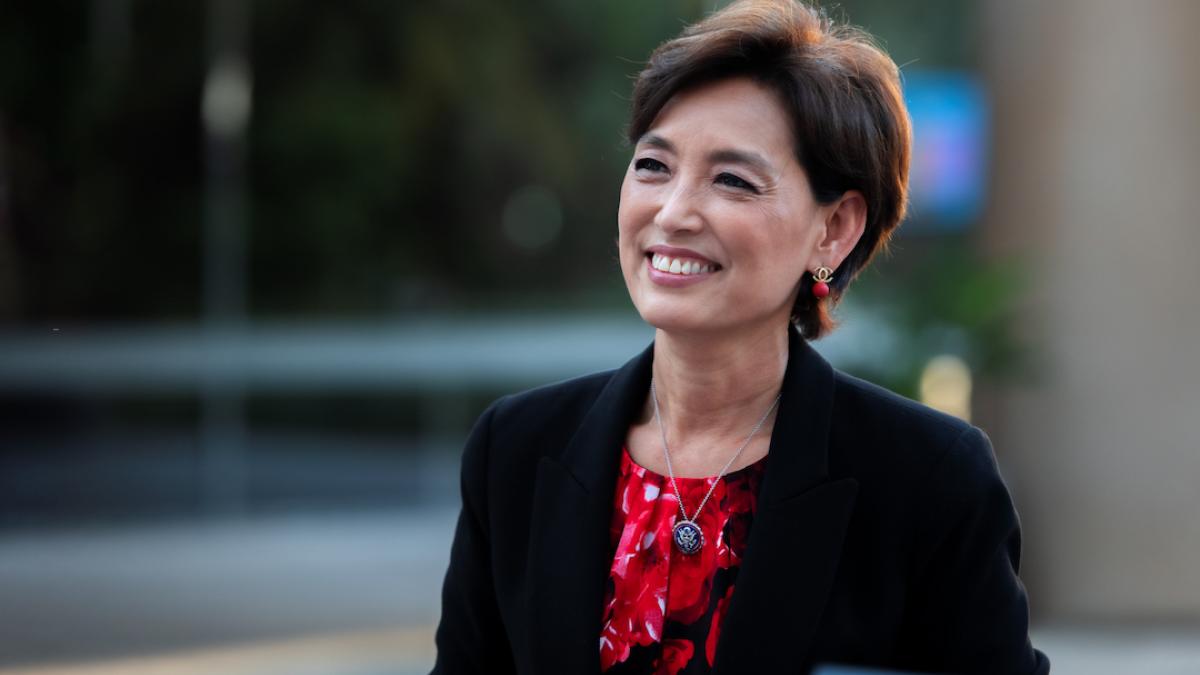Washington, DC – Today, U.S. Representatives Young Kim (CA-39) and Lisa Blunt Rochester (DE-AL), and Senators Thom Tillis (R-NC) and Jeff Merkley (D-OR), introduced the bipartisan, bicameral National Nursing Workforce Center Act (H.R. 8817) to address nursing workforce shortages.
The National Nursing Workforce Center Act would create a 3-year pilot program to enable existing state nursing workforce centers to boost local nursing workforces and better evaluate the recruitment of nurses, factors contributing to nurse retention and opportunities for nursing workforce public-private partnerships.
“Our nurses went above and beyond to care for Americans during the COVID-19 pandemic and are now suffering from burnout, exhaustion and unsustainable schedules due to the nursing workforce shortage. Nurses play a vital role in protecting public health and deserve our full support,” said Rep. Kim. “The National Nursing Workforce Center Act will take important, targeted steps to help stabilize and strengthen our nursing workforce. I am proud to work with Rep. Blunt Rochester and Senators Tillis and Merkley on this bipartisan, bicameral effort and will always stand with our heroes in nursing and the patients they support.”
“The COVID-19 pandemic has exacerbated a nation-wide shortage of healthcare workers including registered nurses. As an integral part of our healthcare system, we must do all we can to support the recruiting and retention of nurses across the country – the quality of care depends on it,” said Rep. Blunt Rochester. “That’s why I am proud to introduce the National Nursing Workforce Center Act, a bipartisan & bicameral piece of legislation that will create a pilot program to establish state-based nursing workforce centers to focus on the education and training of nurses. This legislation provides a tangible solution to the ongoing nurse shortage while supporting our current nursing workforce and I’m hopeful Congress will work to pass this legislation as quickly as possible.”
“Nurses play a crucial role in providing accessible, high-quality care to Americans. Resolving existing nursing workforce challenges, which have been compounded by the pandemic, the increased demand for health care services, and the aging workforce, requires innovative approaches that support and strengthen every aspect of the nursing workforce pipeline,” said Senator Tillis. “I’m proud to co-introduce the bipartisan National Nursing Workforce Center Act that will enhance collaboration and coordination, enabling state and local experts to identify and address unique challenges to increase the resiliency of the nursing workforce.”
“As the husband of a nurse, I know just how important nurses are to patients, and how their support and advocacy can make a world of difference at some of the most difficult and joyous moments of people’s lives,” said Senator Merkley. “This bill will help establish and support local nursing initiatives and workforce centers across the country—like the one we already have here in Oregon—to apply a local approach to the current nursing workforce crisis. I look forward to working with my colleagues on both sides of the aisle to get this bipartisan bill passed.”
“Congresswoman Kim recognizes the importance of nurses in our healthcare system and advancing the public’s health and has taken action to move nursing forward to meet the needs of the U.S. population,” said Yorba Linda City Councilwoman and Nurse Practitioner Beth Haney. “As a nurse practitioner and Vice-Chair of our local hospital governing board, I see the immense need for nurses firsthand and I am grateful for Congresswoman Kim’s work on this bill.”
“The National Forum of State Nursing Workforce Centers is excited about the introduction of the National Nursing Workforce Center Act. This will provide critical funding to support and solidify the foundation of existing nursing workforce centers while providing funding for states without a center to create one. This act would provide technical assistance to smaller and new nursing workforce centers and build a strong network of experts on state-level nursing workforce issues and solutions. Nursing workforce centers serve as hubs to advance nursing education, practice, leadership, and workforce development at state and local levels using data-driven approaches,” said Lanelle Weems, President, National Forum of State Nursing Workforce Centers.
The COVID-19 pandemic exacerbated a national shortage of registered nurses. An estimated 500,000 nurses plan to leave the bedside by the end of 2022—creating a shortage of 1.1 million nurses—just as the population of older people, who may require more medical services for complex medical conditions, begins to increase dramatically. Uncoordinated information regarding the landscape of nursing in each state also creates hurdles to developing informed interventions to recruit and retain nurses.
The National Nursing Workforce Center Act would:
- Establish a 3-year pilot program through the Health Resources and Services Administration (HRSA) to support state-based nursing workforce centers;
- Allow HRSA to establish Health Workforce Research Centers on any program under the Public Health Service Act; and,
- Direct HRSA to focus on nursing issues by establish a nursing focused research and technical assistance center under the Health Workforce Research Center Program.
A one-pager of the bill can be found here.




